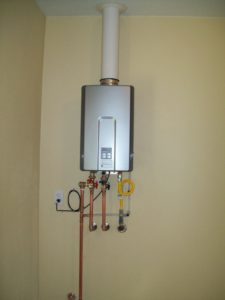Most people individually consume far more than they produce. Despite this being true, most individuals do not consciously label themselves as “consumers.” Though the reasons for this lack of labeling may be many and varied, one reason people do not label themselves consumers may be rooted in the term’s perceived negative connotations. Of course, this doesn’t have to be the case. In fact, there is a movement towards becoming what is sometimes referred to as a “conscious consumer.” Not only does this movement exist today through publications like Consumer Reports, it has historically been able to gain traction among a much larger segment of the public.
Do A Little Research
The first step toward becoming a conscious consumer is understanding the options you have available before purchasing. Too often, people simply default to whatever option a salesperson presents or whatever option they observe or hear about from fellow consumers. A smarter consumer takes the time to understand their options and, most importantly, the difference between the options and which option might thus work best for their unique, individual situation. When it comes to purchasing things like cell phones, advertising and socio-cultural trends make the different options obvious to consumers. With less flashy items, people may not understand that there are different purchase options at all. Here is a look at one of those purchase items: the water heater. There are actually many water heater options available to consumers and each may be beneficial depending on an individual’s circumstances.
Conventional Storage
Conventional storage water heaters are the most popular option. They involve a storage container which offers a ready-supply of hot water. Conventional storage water heaters work by maintaining hot water at the top of the tank that is released when the hot water tap is turned on—cold water then comes in through the bottom of the tank to replace the lost hot water. They may be powered by a variety of fuel sources including natural gas, propane, fuel oil and electricity. One drawback to these systems is that because they maintain a constant supply of hot water, they use energy even when hot water is not being used.
Tankless
Tankless water heaters, otherwise referred to as demand-type water heaters, provide hot water only when needed. This solves the aforementioned problem of energy loss inherent in conventional storage water heaters. With tankless systems, when the hot water is turned on, cold water fills the unit which is then heated by either gas or electricity. Another benefit of these systems is that the supply of hot water they provide is constant, rather than limited to the certain stored amount in a conventional system. A drawback to a tankless system is its constant heating of a smaller water supply limits its flow rate.
Heat Pump
Heat pumps are usually used in a home’s HVAC system to heat and cool the home, but they may also be used to heat water. Sometimes they function as the sole source of hot water, other times they operate as a supplement in a multi-part system. Heat pumps work with the heat that already exists (has already been generated) within a home’s energy system. Heat pumps use electricity to move heat where it is needed, rather than heat the water directly. Heat pumps can be multiple times more energy efficient than conventional water heaters, which work against the electricity of the house rather than with it.
Other types of water heaters include solar powered water heaters, tankless coil, and indirect water heaters. Another aspect of being a conscious consumer, of course, is proper maintenance of your purchases. Contact a DC water heater repair company if you think you may be interested in installing, upgrading or maintaining your water heater.




